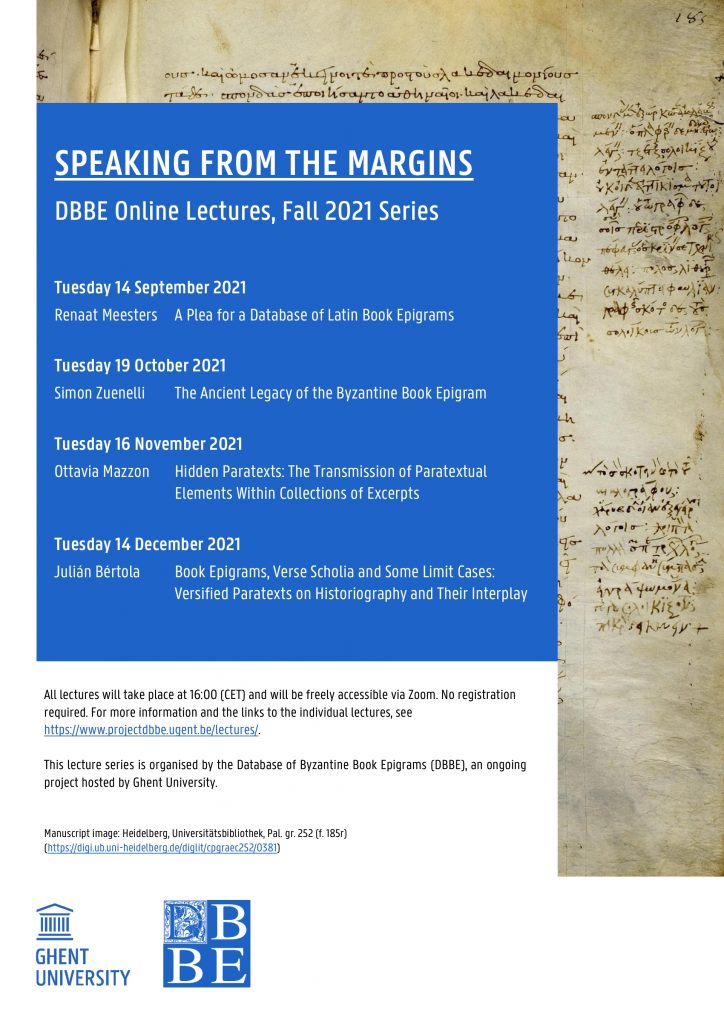Perhaps you have participated in, or heard about, the first series of online lectures on the topic of book epigrams, organized by The Database of Byzantine Book Epigrams project, hosted at Ghent University (www.dbbe.ugent.be). This series, of which the online format was initially prompted by health measures, contributed greatly to our knowledge of a variety of forms and types of book epigrams, and invited interesting interdisciplinary exchanges.
Therefore, we are delighted to announce the programme of a second series of Speaking From the Margins, which will include four online lectures. We keep the focus on book epigrams in a broad sense, bringing together speakers across the scholarly spectrum.
Book epigrams continue to elicit interest from many angles. Byzantine manuscripts regularly contained colophons, scribal prayers, dedicatory pieces, and other “paratexts” in verse. These small (or sometimes long) poems give us unique insights into the interests, ideologies and emotions of scribe, patron, and/or reader. They are testimonies to a long and often eventful history of reading and interpretation in Byzantine culture, and at the same time, they are fascinating (but sometimes overlooked) works of poetic art.
The lectures will take place at 4pm (CET) and will be accessible to everyone via Zoom. The recordings of all the previous online lectures are available on the DBBE YouTube channel: https://www.youtube.com/channel/UCm085S1xRlDi5LQ5t5NMRFw.
More information and links to the individual lectures can be found on: https://www.projectdbbe.ugent.be/lectures/.
Please save these dates in your calendar:
- Tuesday 14 September 2021
Renaat Meesters, A Plea for a Database of Latin Book Epigrams - Tuesday 19 October 2021
Simon Zuenelli, The Ancient Legacy of the Byzantine Book Epigram - Tuesday 16 November 2021
Ottavia Mazzon, Hidden Paratexts: The Transmission of Paratextual Elements Within Collections of Excerpts - Tuesday 14 December 2021
Julián Bértola, Book Epigrams, Verse Scholia and Some Limit Cases: Versified Paratexts on Historiography and Their Interplay
